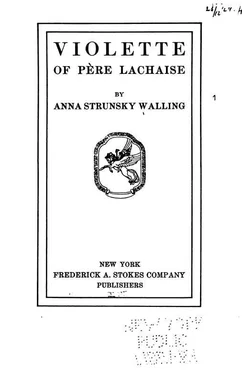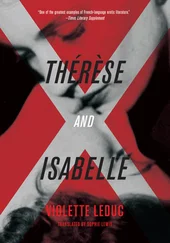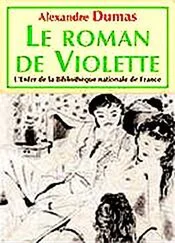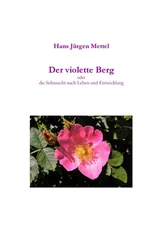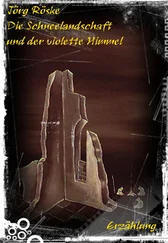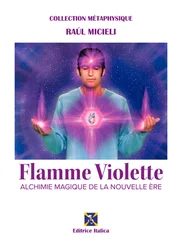Anna Strunsky - Violette of Père Lachaise
Здесь есть возможность читать онлайн «Anna Strunsky - Violette of Père Lachaise» весь текст электронной книги совершенно бесплатно (целиком полную версию без сокращений). В некоторых случаях можно слушать аудио, скачать через торрент в формате fb2 и присутствует краткое содержание. Город: New York, Год выпуска: 1916, Издательство: Frederick A. Stokes Company, Жанр: great_story, на английском языке. Описание произведения, (предисловие) а так же отзывы посетителей доступны на портале библиотеки ЛибКат.
- Название:Violette of Père Lachaise
- Автор:
- Издательство:Frederick A. Stokes Company
- Жанр:
- Год:1916
- Город:New York
- ISBN:нет данных
- Рейтинг книги:4 / 5. Голосов: 1
-
Избранное:Добавить в избранное
- Отзывы:
-
Ваша оценка:
- 80
- 1
- 2
- 3
- 4
- 5
Violette of Père Lachaise: краткое содержание, описание и аннотация
Предлагаем к чтению аннотацию, описание, краткое содержание или предисловие (зависит от того, что написал сам автор книги «Violette of Père Lachaise»). Если вы не нашли необходимую информацию о книге — напишите в комментариях, мы постараемся отыскать её.
Violette of Père Lachaise — читать онлайн бесплатно полную книгу (весь текст) целиком
Ниже представлен текст книги, разбитый по страницам. Система сохранения места последней прочитанной страницы, позволяет с удобством читать онлайн бесплатно книгу «Violette of Père Lachaise», без необходимости каждый раз заново искать на чём Вы остановились. Поставьте закладку, и сможете в любой момент перейти на страницу, на которой закончили чтение.
Интервал:
Закладка:
There was the time she discovered poverty. Like a Columbus of the spirit she adventured over the sea of human existence where storms and wrecks abound, where people lie famishing, eaten in and out with want so that the very texture of their spirits shrinks together, becomes grey and deathlike. She discovered it from the children of her street, who were hungry and ragged; from the woman next door, whose breasts, as so often happens with the poor, dried up through lack of food, and who came borrowing sous with which to buy milk for her infant. She discovered poverty as a fact, not only in her own world, but in the world beyond her world, in the world which she would enter and storm when she grew up. She saw the prison walls it built up around people to keep out the daylight. The real martyrdom of poverty was not the suffering of hunger and cold—it was that so much of life was turned to death, so much shut away from the heart's desire, so much kept hidden from the mind. That was where the robbery and the mvu-der of it lay. She saw inequalities of life, so incalculable and infinite that they led to inequalities of death! People died when they might have lived, people went down too soon into their graves, away from the long road which led all aroimd the earth till it came to a vast sea!
That people should be poor and be resigned—that was terrible. That they should range themselves into classes, and not believe that a legacy of joy and power was theirs!
It lay in her power to refuse to be poor— to free herself from everything that had ever limited her. She would not be denied—she would not let life forsake her.
She would rove in the world, she would plunge forward to find what there was worth knowing and being. There were books. She would read. There were people. She would meet them—the best should not afford to overlook her, or to refuse what she had to give. That was the way not to be poor—it was a way of seeking to establish the last democracy in one's life, and she came upon that way in a flash of imaginative wisdom. It was now in her power to try to think whatever she wished to think, to try to be whatever she wished to be. From that moment she was free.
IX. Promise
SUCH was the manner in which the shadows of that childhood lifted, in which Violette became more and more a creature of life. It was a long childhood, for she had the subtlety of a woman at its beginning and the simplicity of a child at the end. Yet it passed like all childhood, in a day, in an hour, in a breath of spring, in the sweep of a wing across the summer sky. Genius sprang out of that early hour, genius that stood not for any one art, but for personality, for richness of spirit, for flashing intuitive intellect, genius that found its first expression in an insistence on freedom and scope, in the extraordinary demand that she made upon life. There was a gaiety in her speech and bearing, as if she had grown old enough to taste the sweetness of her youth. She had a practical ambition, too. She would seat herself at the banquet of happiness with her grandfather. He who had had nothing should sit and behold his life reborn, refashioned. He should have all the happiness and peace he had ever prayed for for her,—she would make his old age brilliant.
There was the same passion in her demand for herself that there was in the progranune that she drew up for the future of the world. She wanted life, more and more life. Whatever life held of good that she would have, and life at bottom, deep down in its very nature, was good—even its sorrows, even its eternal tragedies. Out of the narrowness of her existence, out of her isolation, out of her utter poverty, sprang this brilliant desire for all that was good and large and free, this miraculous faith in the treasures hidden somewhere near at hand.
So the dream came and went in her mind, as she sat in the room the floor of which was strewn with scraps of ferns and tinsel. She looked at her grandfather bent over his work, and wondered if he guessed how beautiful their destiny loomed before her even as they sat chilled, underfed, tired, alone. She wound her arms around his neck and pressed her face to his, and looked into his eyes. It would be like a play—years of sadness, hemmed in by age and death, and then the world would lie before them in splendour, inviting then- feet and then- hearts! How? When? She did not ask, she did not know. It was enough that it was possible.
They approached each other more closely now. Avenues of expression opened up between them, thoughts and ideas flowed easily from one to the other. They spoke together of the movement which extended beyond boundaries of nation and race, a movement that, child though she was, she understood to be historic. She believed that it was possible for her, as well as for everybody, to play a part in bringing about the change.
Violette, cradled by Pere Lachaise, wept over and yearned over so long by her grandfather, could grow into radiant, perfect womanhood, could grow into all that is symbolic of human development, human aspiration and achievement, could become a wonderful expression of the beauty and the power of the human spirit. As far as it was possible for an individual to take part in the drama of social revolution, she would find her role.
In this way it was decided in that little shop that here was to be nurtured a complete personality, here was to be incarnated womanhood, youth, life, art. Love was to sit at the banquet. The world was to be stretched out at their feet for their use and delight. Henceforth, there was but one thing to do—to free the nightingale in her, to transplant her from the desert into the world's garden. To herself and to her grandfather she was destined for the happiness of genius.
Girlhood
I. Growth
HER days now lay like a beautiful landscape basking in the sun, still as a lake mirroring summer skies and gentle trees. There seemed to be a pause as if thought had given way to dreams, as if something in her had begged and ob-tained a respite. "How life slips by one I" she marvelled. "How it glides by like a river shining brightly in the sun—winds like a gentle road among beautiful trees and meadows, up hills and among valleys, and every step brings one to a new prospect, beautiful, arresting, overwhelming. What a ciu'ious thing it is that life should so gently and unnoticeably glide past one and yet be so full of wonders, so full of wizard charms I" There were now just two or three things that mattered and those she knew, and everything else she had forgotten or cast aside. She knew that the ocean existed. Somewhere beyond Paris it beat and roared and filled the air with salt freshness, and invited the mind to float out upon its vastness. Simple big things like that marked and comprised her girlhood,—she felt the world, in her sympathy with the joys and sufferings of people, felt infinity every time she looked up at a star-dusted sky, felt life each time she entered or glanced over towards Pere Lachaise.
Towards people she bore herself gently— with a peculiar tolerance, which she lost a few years later, with their opinions and even prejudices, a tolerance which kept pace with her own strength of feeling and principle.
And there were now facts which she must learn to overlook, or at least to put from her as far as possible—the whole world had learned to overlook them. One must overlook death and the incompleteness of life and one must overlook the way the world was conducted. One must not make oneself a party to the crimes and the suffering of the world, one could not lock oneself in the chamber of the condemned to suffer execution with them, one could not enter alone the dark and frenzied mind, and live there in its chaos, in the fumes of the poison of its hatred—Life must become too full for her to allow her to do this.
Читать дальшеИнтервал:
Закладка:
Похожие книги на «Violette of Père Lachaise»
Представляем Вашему вниманию похожие книги на «Violette of Père Lachaise» списком для выбора. Мы отобрали схожую по названию и смыслу литературу в надежде предоставить читателям больше вариантов отыскать новые, интересные, ещё непрочитанные произведения.
Обсуждение, отзывы о книге «Violette of Père Lachaise» и просто собственные мнения читателей. Оставьте ваши комментарии, напишите, что Вы думаете о произведении, его смысле или главных героях. Укажите что конкретно понравилось, а что нет, и почему Вы так считаете.
